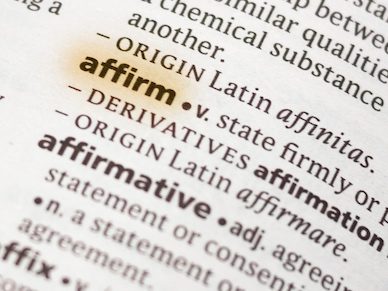“[The precedential] cases [relied on by DexCom] lacked a key circumstance present here—that the Agreement allowed the filing of IPR petitions under certain circumstances notwithstanding the existence of the forum selection clause.” – CAFC opinion
 The U.S. Court of Appeals for the Federal Circuit (CAFC) today issued a precedential ruling that affirmed a district court’s denial of preliminary injunction to DexCom, Inc., holding that the language of the governing contract’s forum selection clause expressly allowed for the filing of inter partes review (IPR) proceedings in certain circumstances.
The U.S. Court of Appeals for the Federal Circuit (CAFC) today issued a precedential ruling that affirmed a district court’s denial of preliminary injunction to DexCom, Inc., holding that the language of the governing contract’s forum selection clause expressly allowed for the filing of inter partes review (IPR) proceedings in certain circumstances.
DexCom and Abbott Diabetes Care, Inc. entered into a settlement and license agreement in 2014, following years of patent litigation over their competing glucose monitoring system patents. The governing agreement included a Covenant Period and a forum selection clause that DexCom argued was breached by Abbott’s filing of eight IPR petitions following the expiration of the Covenant Period and 10 months after DexCom filed an infringement suit against Abbott in the Western District of Texas.
In October 202, DexCom moved for a preliminary injunction in the District of Delaware, where DexCom’s infringement suit had been transferred and consolidated with Abbott’s breach of contract suit, seeking to enjoin Abbott from moving forward with the IPRs. The district court found in favor of DexCom on the first factor relevant to issuance of a preliminary injunction, likelihood of success, but found in favor of denying the injunction on the other two factors— irreparable harm and balance of hardship. Thus, the court ultimately denied the injunction.
On appeal to the CAFC, DexCom argued in part that the appellate court’s decisions in Texas Instruments Inc. v. Tessera, Inc.; General Protecht Group v. Leviton Mfg. Co.; and Dodocase VR, Inc. v. MerchSource, LLC supported its argument that the forum selection clause at issue precluded Abbott from filing the IPRs. But the Federal Circuit distinguished those cases, explaining that the underlying Agreement in the present case expressly articulated certain exceptions to the forum selection clause that allowed for the filing of IPRs both during and after the Covenant Period:
“Although we held that the specific forum selection clauses at issue in those cases prohibited filing a proceeding outside the stipulated forum, those cases lacked a key circumstance present here—that the Agreement allowed the filing of IPR petitions under certain circumstances notwithstanding the existence of the forum selection clause.”
Specifically, the contract contained two exceptions to the “no-challenge Covenant” under the heading “F. No Challenge Covenants and Exceptions Thereto,” which stated:
“3. However, each Party reserves its rights and is permitted to Challenge any patent or patent application that is being asserted (or threatened to be asserted) against it or its products.
4. Further, each Party reserves its rights and is permitted to Challenge any of the patents of the other Party if there is a statute, regulation, or rule that sets a deadline to make the Challenge.”
Furthermore, the Agreement’s definition of “Challenge” expressly included IPRs. The CAFC thus found DexCom was not likely to succeed on its breach of contract counter-counterclaim, disagreeing with the district court on that point, but holding the error harmless since the ultimate result was still to deny the preliminary injunction.
Because the CAFC found DexCom was not likely to succeed, it did not need to address the remaining preliminary injunction factors and affirmed the denial of a preliminary injunction.
Image Source: Deposit Photos
Author: sharafmaksumov
Image ID: 229492118

![[IPWatchdog Logo]](https://ipwatchdog.com/wp-content/themes/IPWatchdog%20-%202023/assets/images/temp/logo-small@2x.png)

![[Advertisement]](https://ipwatchdog.com/wp-content/uploads/2024/04/UnitedLex-May-2-2024-sidebar-700x500-1.jpg)
![[Advertisement]](https://ipwatchdog.com/wp-content/uploads/2024/04/Artificial-Intelligence-2024-REPLAY-sidebar-700x500-corrected.jpg)
![[Advertisement]](https://ipwatchdog.com/wp-content/uploads/2024/04/Patent-Litigation-Masters-2024-sidebar-700x500-1.jpg)

![[Advertisement]](https://ipwatchdog.com/wp-content/uploads/2021/12/WEBINAR-336-x-280-px.png)
![[Advertisement]](https://ipwatchdog.com/wp-content/uploads/2021/12/2021-Patent-Practice-on-Demand-recorded-Feb-2021-336-x-280.jpg)
![[Advertisement]](https://ipwatchdog.com/wp-content/uploads/2021/12/Ad-4-The-Invent-Patent-System™.png)






Join the Discussion
No comments yet.